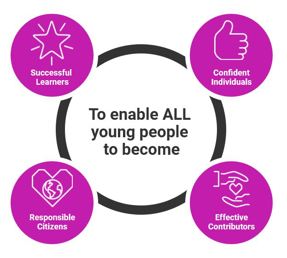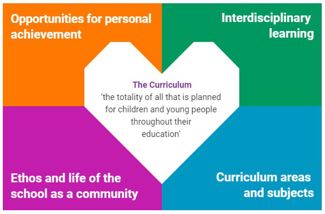Scotland’s curriculum – Curriculum for Excellence (CfE) – helps our children and young people gain the knowledge, skills and attributes needed for life in the 21st century. A refreshed narrative on Scotland’s curriculum, which sets CfE within the current context, was published in September 2019.
Scotland’s approach

Curriculum for Excellence places learners at the heart of education. At its centre are four fundamental capacities. These capacities reflect and recognise the lifelong nature of education and learning. The four capacities are aimed at helping children and young people to become:
- Successful learners
- Confident individuals
- Responsible citizens
- Effective contributors
What matters?

As part of their learner journey, all children and young people in Scotland are entitled to experience a coherent curriculum from 3 to 18, in order that they have opportunities to develop the knowledge, skills and attributes they need to adapt, think critically and flourish in today’s world.
Curriculum is defined as the totality of all that is planned for children and young people from early learning and childcare, through school and beyond. That totality can be planned for and experienced by learners across :
- Curriculum areas and subjects
- Interdisciplinary learning
- Ethos and life of the school
- Opportunities for personal achievement
Key elements
Curriculum levels
The broad general education has five levels (early, first, second, third and fourth). The senior phase is designed to build on the experiences and outcomes of the broad general education, and to allow young people to take qualifications and courses that suit their abilities and interests.
Curriculum areas
There are eight curriculum areas:
- Expressive arts
- Health and wellbeing
- Languages (including English, Gàidhlig, Gaelic (Learners), modern languages and classical languages)
- Mathematics
- Religious and moral education (including Religious and moral education and Religious education in Roman Catholic schools)
- Sciences
- Social studies
- Technologies.
Literacy, numeracy and health and wellbeing are recognised as being particularly important – these areas are seen as being the ‘responsibility of all’ staff.

